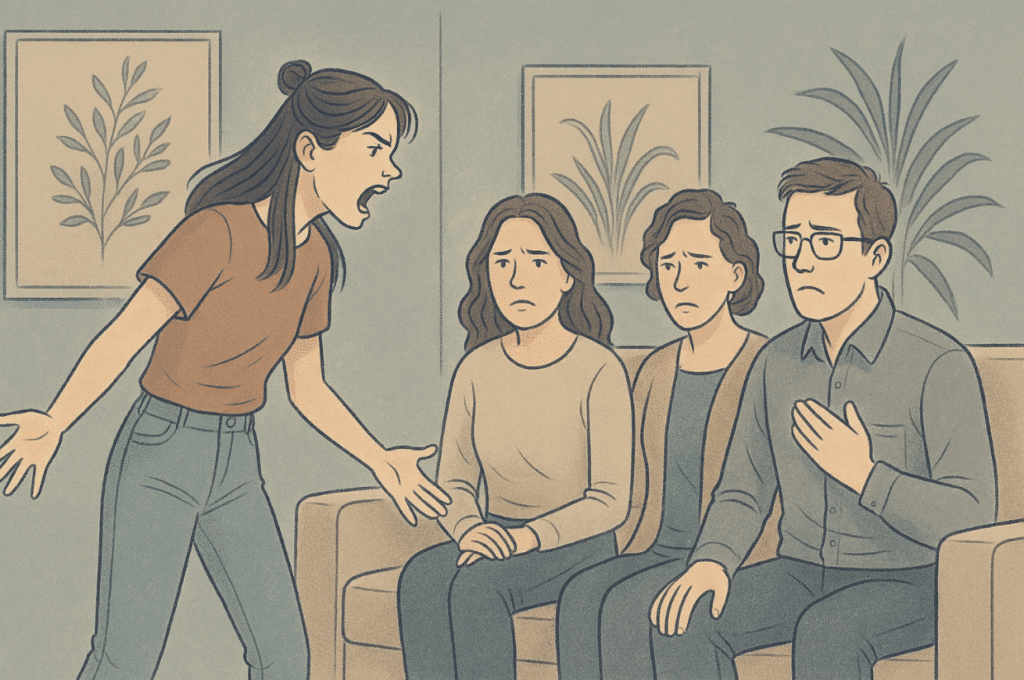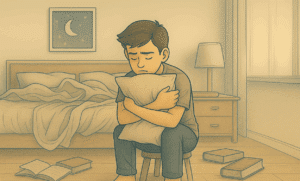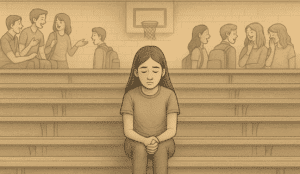Key Takeaways
- Oppositional Defiant Disorder (ODD) in teen girls often presents differently than in boys, with symptoms that may be more internalized and harder to identify.
- The prevalence of ODD in teens is estimated at 28–65%, with many cases being misdiagnosed as anxiety or depression.
- Treatment approaches including parent training programs and Cognitive Behavioral Therapy, show significant effectiveness when tailored specifically to girls.
- Early intervention is crucial, as untreated ODD can develop into more serious conditions like conduct disorder or persist into adulthood.
- Mission Prep Healthcare specializes in providing comprehensive assessment and evidence-based treatment options for teen girls struggling with ODD.
Understanding ODD in Teen Girls
Oppositional Defiant Disorder is characterized by a persistent pattern of angry mood, argumentative behavior, and vindictiveness that exceeds typical teenage defiance. While these behaviors occur in all teens to some degree, ODD represents a clinical level of disruption that significantly impairs functioning across multiple settings. For adolescent girls specifically, the manifestation of these symptoms often takes forms that differ substantially from their male counterparts.
How ODD Differs in Girls
Teen girls with ODD typically display more covert symptoms compared to boys, who tend to exhibit more overtly aggressive behaviors. Girls often demonstrate relational aggression, passive-aggressive tactics, and verbal defiance rather than physical confrontation.
They may appear compliant in certain settings (like school) while reserving their most defiant behaviors for home, making diagnosis more complex. This gender-specific presentation often leads to delayed identification and treatment, as the behaviors may be attributed to hormonal changes, typical teenage rebellion, or other conditions like anxiety and depression.
Prevalence Statistics
Research indicates that Oppositional Defiant Disorder affects approximately 28–65% of adolescents. The condition typically emerges between ages 8–13, with symptoms often intensifying during puberty due to hormonal influences and increasing social pressures.
The gender gap in diagnosis has narrowed in recent years as mental health professionals have become more aware of the different manifestations of ODD across genders. However, girls are still more likely to be misdiagnosed with mood disorders, leading to interventions that don’t address the core behavioral challenges they face.
| Mission Prep Healthcare: Adolescent Mental Health Care Mission Prep Healthcare specializes in mental health treatment for teens aged 12-17, offering residential and outpatient programs for anxiety, depression, trauma, and mood disorders. Our therapies include CBT, DBT, EMDR, and TMS, tailored to each adolescent’s needs. With a structured, supportive environment, we integrate academic support and family involvement to promote lasting recovery. Our goal is to help teens build resilience and regain confidence in their future. Start your recovery journey with Mission Prep Healthcare today! |
Common Symptoms of ODD
Angry Outbursts
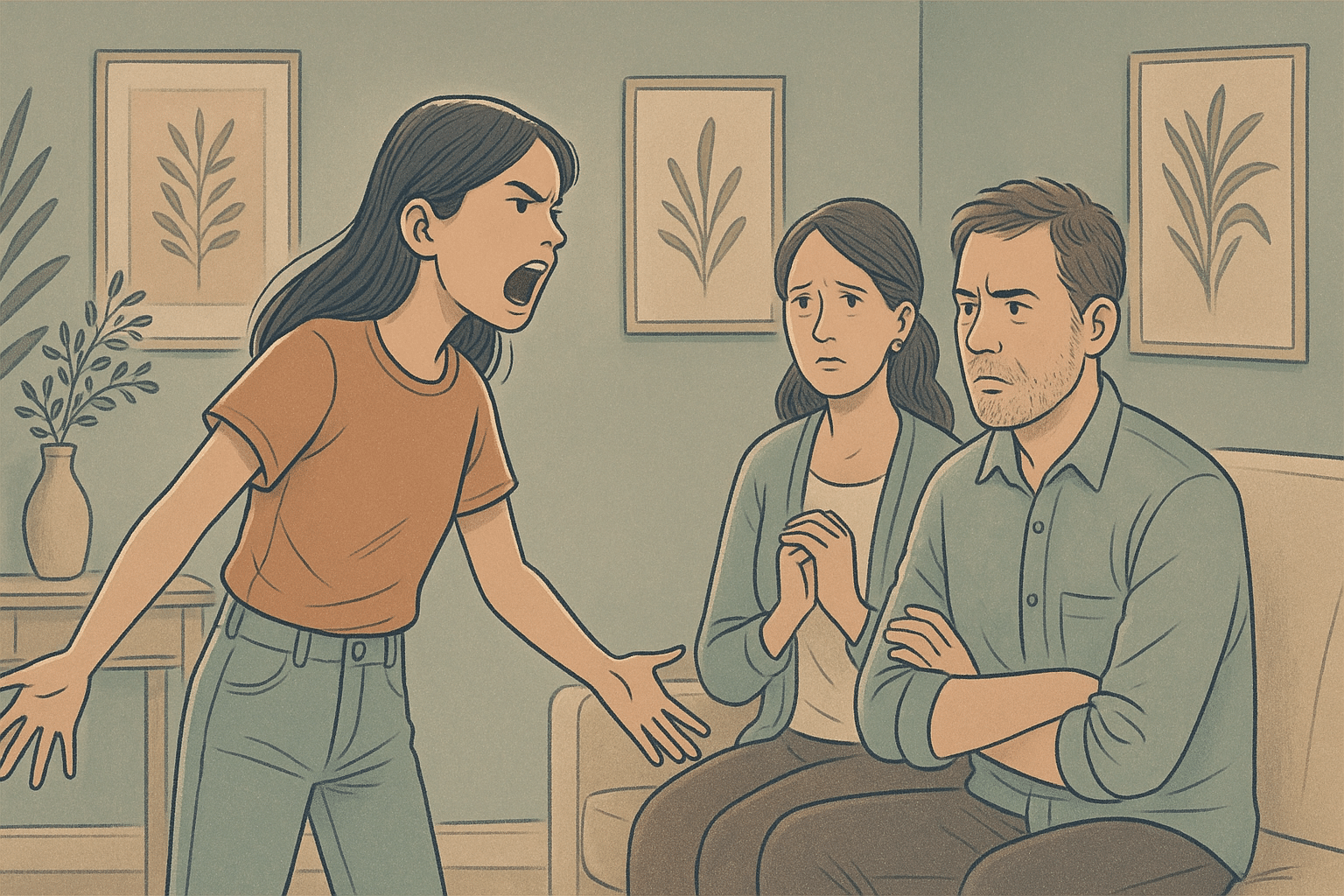
Teen girls with ODD often display emotional reactivity that seems disproportionate to the situation.
While typical teenagers might show occasional moodiness, girls with Oppositional Defiant Disorder demonstrate frequent, intense anger that can appear suddenly and without clear provocation. These outbursts may include yelling, crying, door slamming, or verbal attacks that seem excessive given the circumstance.
Unlike normal teenage emotional volatility, these outbursts follow a pattern and typically occur in response to perceived demands, limits, or authority. The intensity might seem theatrical or manipulative, but for the teen experiencing ODD, these emotions feel genuine and overwhelming.
Authority Resistance
A hallmark sign of ODD in teen girls is consistent, deliberate resistance to authority figures, particularly parents and teachers. This resistance often manifests as persistent questioning of rules, arguing about directions, or passive non-compliance rather than outright refusal.
Girls with ODD might initially appear to agree to requests but then find creative ways to avoid following through, creating frustration for adults trying to maintain reasonable boundaries. What distinguishes this behavior from typical teenage independence-seeking is its pervasiveness, intensity, and the significant strain it places on relationships.
Social Relationship Problems
Rather than outright aggression, girls with ODD might engage in relational manipulation, spreading rumors, or orchestrating social exclusion. They may form intense but unstable friendships characterized by dramatic conflicts and reconciliations. Many struggle with perspective-taking and misinterpret neutral social cues as hostile, leading to defensive or aggressive responses that confuse peers.
In school settings, these social challenges may manifest as frequent complaints about being treated unfairly by peers, difficulty working in groups, or becoming overly controlling in collaborative activities. As social relationships become increasingly complex in adolescence, girls with ODD often find themselves being isolated, which can exacerbate symptoms.
Vindictive Behavior
One of the more concerning aspects of ODD in teen girls is the presence of vindictive behaviors that go beyond typical teenage spite. You may hold grudges for extended periods, devise elaborate plans to “get back” at those you feel have wronged you, or deliberately engage in behaviors you know will upset authority figures. Unlike impulsive retaliation, these vindictive actions often involve planning and patience, revealing a concerning pattern of intentional harm.
While all teens occasionally engage in petty revenge, girls with ODD demonstrate a pattern where vindictiveness becomes a primary response to perceived slights.
Diagnosing ODD
Behavior Assessment Tools
Several standardized assessment tools help clinicians evaluate the presence and severity of ODD symptoms in adolescents. The Child Behavior Checklist (CBCL), Behavior Assessment System for Children (BASC), and the Disruptive Behavior Disorder Rating Scale provide structured ways to quantify behavioral concerns.
These assessments typically include parent, teacher, and self-report versions to capture behavior across different contexts. For teen girls specifically, clinicians may need to look beyond the obvious disruptive behaviors and pay special attention to items related to relational aggression, covert defiance, and emotional reactivity.
These standardized measures help distinguish between normative teenage behavior and clinically significant problems by comparing a teen’s behavior to age and gender norm.
Clinical Interviews
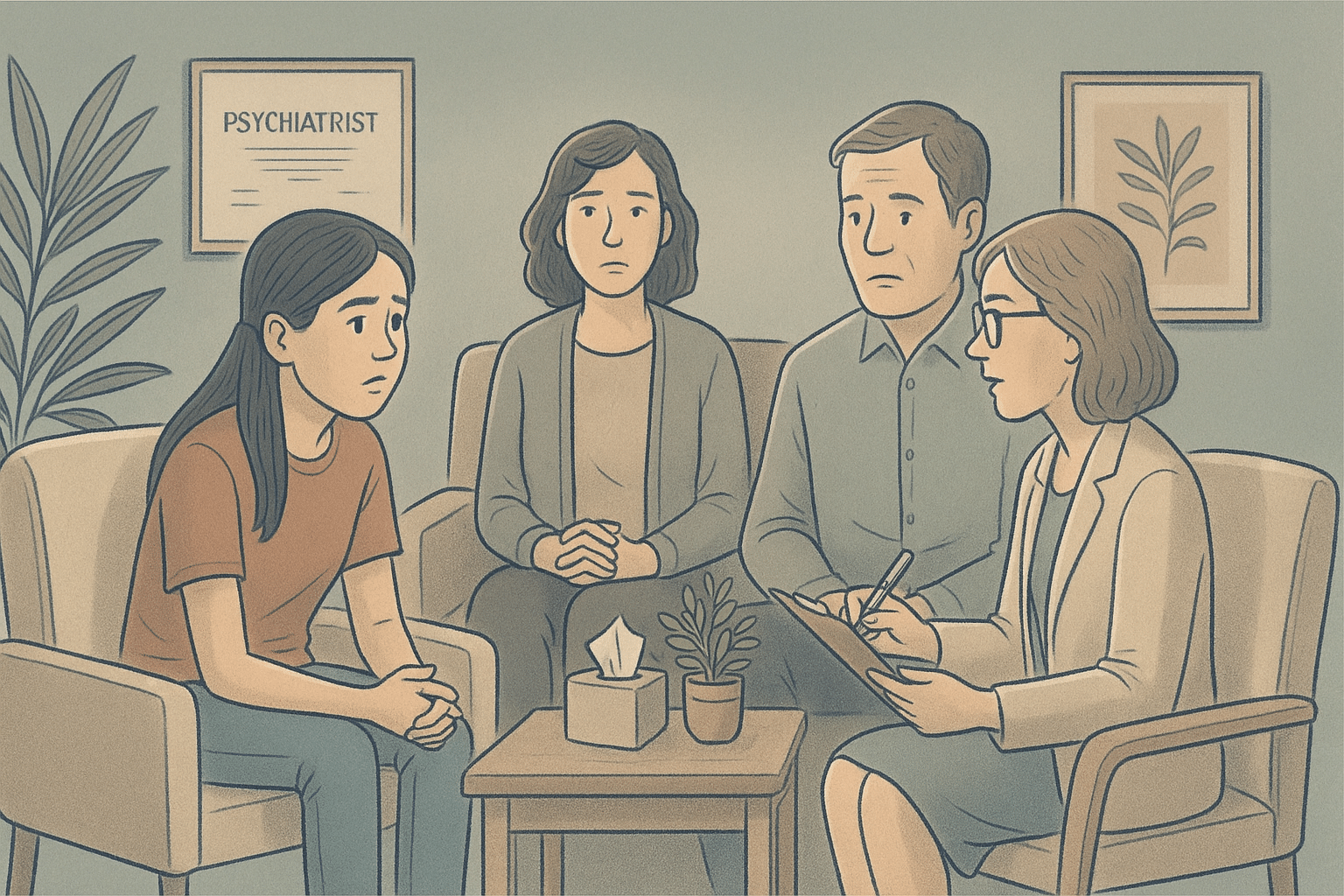
In-depth clinical interviews with both the teen and her parents form a crucial component of the diagnostic process.
Clinical interviews explore the nature, frequency, and impact of defiant behaviors while assessing for potential contributing factors. Skilled clinicians create a non-judgmental environment where teens might acknowledge behaviors they typically deny or minimize, providing valuable diagnostic information.
For girls with ODD, who often present differently than the stereotypical image of the disorder, these interviews help uncover the more subtle manifestations of defiance that might not be captured on standardized measures.
School Reports
Information from teachers and school counselors provides another essential perspective in diagnosing ODD in teen girls. While many girls with ODD show better behavioral control at school than at home, educators often notice subtle signs of defiance, such as passive non-compliance, selective rule-following, or problematic peer interactions.
School reports also help identify academic impacts of ODD, which might include inconsistent performance, difficulty with group projects, or conflicts with specific teachers. For many teen girls with ODD, academic performance fluctuates dramatically based on your relationship with individual teachers or your interest in specific subjects.
Causes and Risk Factors
Genetic Influences
Research indicates that genetic factors account for approximately 50% of a teen’s vulnerability to developing ODD. Studies of families and twins show that ODD often runs in families, suggesting a hereditary component to the condition.
Girls with first-degree relatives who have ODD, conduct disorder, ADHD, or mood disorders show increased risk of developing ODD themselves. These genetic influences likely affect temperament, emotional regulation abilities, and impulsivity, all traits that can contribute to the development of oppositional behavior.
Environmental Triggers
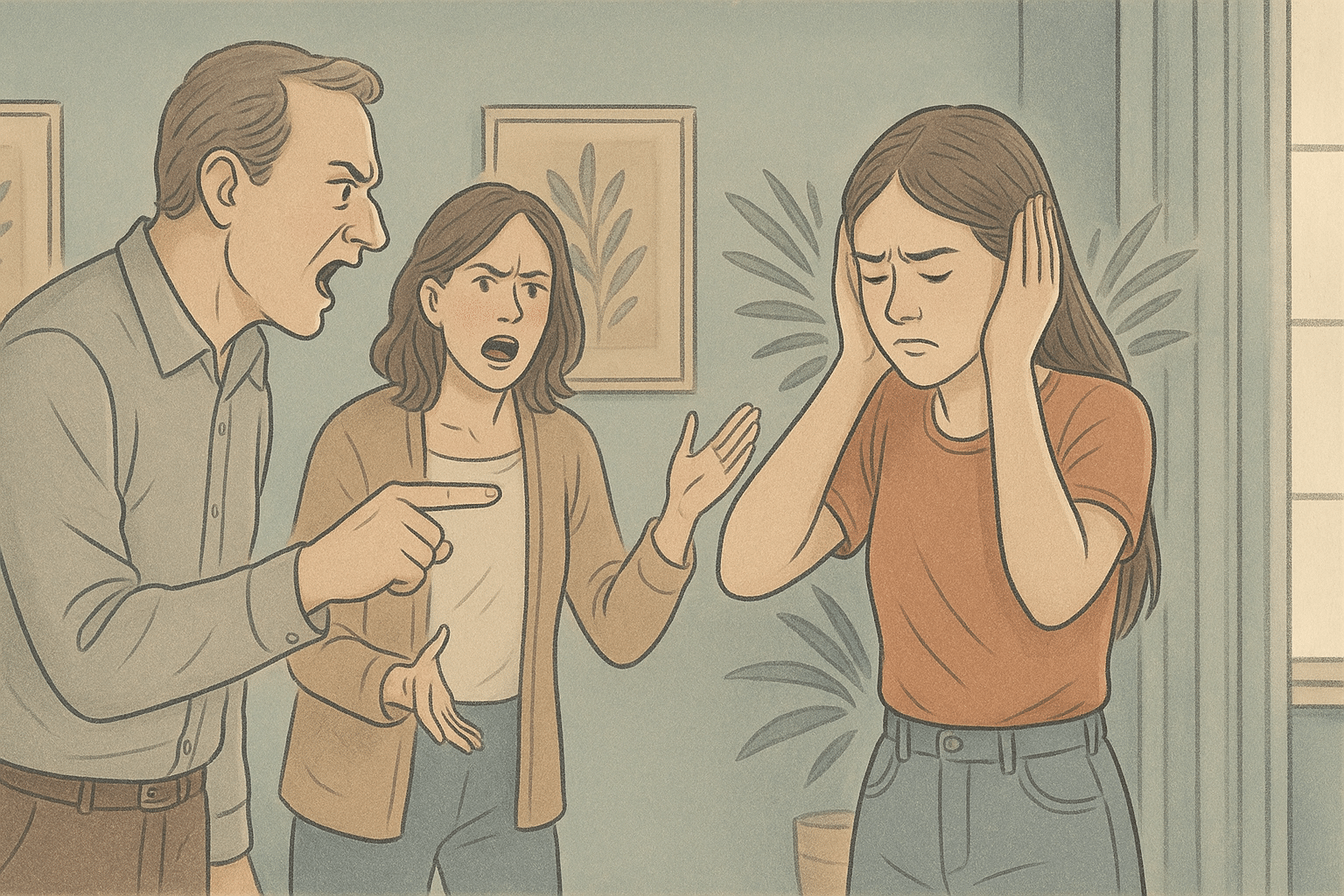
Environmental factors play a crucial role in either amplifying or mitigating genetic vulnerability to ODD.
Family environments characterized by inconsistent discipline, harsh parenting practices, family conflict, or lack of positive supervision increase the risk of ODD development. For teen girls, exposure to household instability, domestic conflict, or parental mental health issues can be particularly impactful.
Additionally, peer influences become increasingly significant during adolescence, with rejection by prosocial peers or acceptance into deviant peer groups contributing to the maintenance of oppositional behaviors.
Trauma Connection
A significant correlation exists between childhood trauma and the development of ODD, with research suggesting that early adverse experiences can increase vulnerability to behavioral disorders.
Girls who have experienced physical abuse, sexual abuse, neglect, or witnessed domestic violence show substantially higher rates of ODD than their peers. The defiant behaviors characteristic of ODD may develop as survival mechanisms in chaotic or threatening environments, representing attempts to establish control or protect oneself in unpredictable situations.
Treatment Options
Cognitive Behavioral Therapy
Individual therapy using cognitive behavioral approaches helps teens develop more adaptive thinking patterns and behavior choices. Cognitive Behavioral Therapy (CBT) for ODD focuses on identifying and challenging distorted thinking (like assuming hostile intent from others), developing problem-solving skills, improving emotional regulation, and building social competence.
For teen girls, CBT often addresses the tendency toward relational aggression and helps develop healthier ways to express anger and resolve conflicts. The therapeutic relationship itself provides an opportunity to practice appropriate interactions with authority figures in a supportive context.
Family Therapy
Because ODD exists within a family system rather than solely within the teen, family therapy plays a vital role in effective treatment. Approaches like Functional Family Therapy (FFT) and Brief Strategic Family Therapy (BSFT) help improve communication patterns, resolve conflicts constructively, and establish healthier family dynamics.
For families with teen girls, therapy often addresses gender-specific expectations and relationship patterns that may contribute to maintaining oppositional behavior. Family therapy creates opportunities to practice new interaction styles in a supported environment, with the therapist coaching family members through difficult conversations.
Medication Considerations
While no medications specifically treat ODD, pharmacological interventions may help manage co-occurring conditions that increase oppositional behavior. For example, when ADHD accompanies ODD, stimulant medications often reduce impulsivity and improve self-regulation, indirectly decreasing defiant behaviors. Similarly, when anxiety or depression co-exists with ODD, appropriate medication for these conditions may reduce emotional reactivity and improve overall functioning. Medication decisions should always consider the full clinical picture, with clear goals and regular monitoring of both benefits and potential side effects.
Getting Comprehensive ODD Treatment at Mission Prep
Mission Prep Healthcare’s comprehensive treatment approach combines thorough assessment with individualized interventions, including Cognitive Behavioral Therapy, Dialectical Behavior Therapy, family therapy, and residential programs when appropriate. We recognize that successful ODD treatment requires addressing both the behavioral symptoms and the underlying emotional dysregulation, family dynamics, and environmental factors that contribute to oppositional patterns.
What sets Mission Prep apart is our commitment to long-term healing rather than quick fixes. We help teens and families understand that recovery is a journey that requires patience, consistency, and ongoing support.

Our modern facilities provide a safe, welcoming environment where teens can build the skills they need for sustainable change, while our 24/7 care ensures support is always available when challenges arise.
If you’re struggling with persistent defiant behavior that’s impacting your family’s well-being, don’t wait for the situation to resolve on its own. Contact Mission Prep today to learn how our specialized approach to ODD treatment can help you develop healthier coping strategies and your family rebuild positive relationships.
Frequently Asked Questions
What should I expect during the diagnostic process for ODD?
A comprehensive assessment typically includes standardized behavior rating scales, clinical interviews with both teens and parents, school reports, and observations across different settings. The process gathers information from multiple sources to accurately identify ODD symptoms and rule out other conditions, usually taking several appointments to complete thoroughly.
Are there effective treatments specifically designed for teen girls with ODD?
Yes, evidence-based treatments like parent training programs, DBT-informed therapy, and family therapy can be modified to address the unique ways ODD presents in girls. These approaches focus on relational aggression, emotional regulation, and the more covert symptoms typical of female presentation.
How long does treatment for ODD typically take to show results?
Most families begin seeing improvements within 3–6 months of starting comprehensive treatment, with continued progress over time. However, recovery is typically gradual rather than sudden, and ongoing management may be needed during periods of stress or transition.
How does Mission Prep approach ODD treatment for teen girls?
Mission Prep provides comprehensive, individualized treatment plans that combine evidence-based therapies like CBT and DBT with family therapy and residential programs when needed. Our approach addresses both the behavioral symptoms and underlying factors contributing to ODD, with 24/7 support and modern facilities designed specifically for adolescent mental health treatment.


